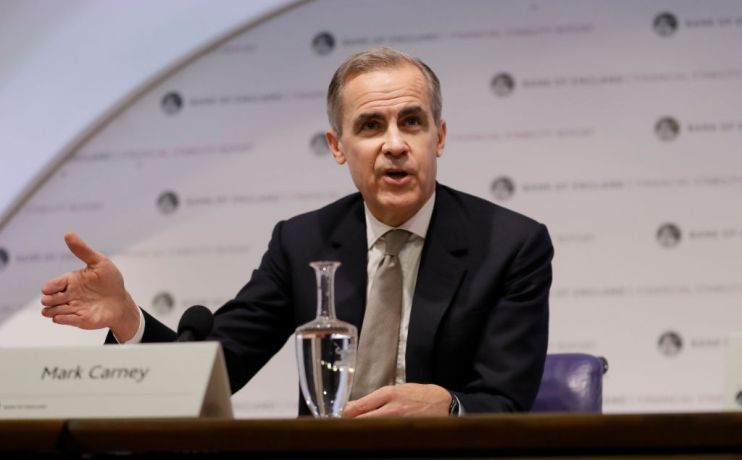Carney rate cut comment sends pound crashing to two-week low

The pound slumped to a near two-week low today after Mark Carney warned that the Bank of England (BoE) could cut interest rates to boost the economy.
Sterling dropped as much as 0.55 per cent against the dollar to $1.301 as the central bank governor said a cut was possible if weaknesses in the economy looked likely to persist.
Read more: Central banks running low on ammunition to fight recession, Mark Carney warns
“With the relatively limited space to cut Bank rate, if evidence builds that the weakness in activity could persist, risk management considerations would favour a relatively prompt response,” Carney said during one of his final speeches before his departure in March.
Last month and in November two of the nine policymakers on the BoE’s monetary policy committee (MPC) voted to cut interest rates, though Carney backed keeping them on hold.
The UK economy grew at its joint-weakest annual rate since 2012 last year as protracted political uncertainty took its toll, though Boris Johnson’s landslide election victory last month has given rise to some optimism.
While Carney acknowledged the positive impact of the election result, markets responded to his dovish comments about a possible rate cut.
“While this shouldn’t come as a huge surprise given that there has been a couple of MPC dissenters calling for lower rates at the past two policy meetings, it is the strongest hint yet for a rate cut in the not too distant future,” said David Cheetham, chief market analyst at XTB.
Carney also raised the possibility of more asset purchases, saying there was room to “at least double” the Bank’s £60bn stimulus package from August 2016.
Money markets now price in a roughly 14 per cent chance of a rate cut at the BoE’s 30 January meeting – Carney’s last before he hands over to incoming boss Andrew Bailey.
Read more: Mark Carney warns financial sector over climate
The current Threadneedle Street chief also pushed back against the idea of using quantitative easing to directly fund infrastructure or environment spending.
“In my view, these should be resisted,” he said. “While carefully circumscribed independence is highly effective in delivering price and financial stability, it cannot deliver lasting prosperity and it cannot address broader societal challenges.”